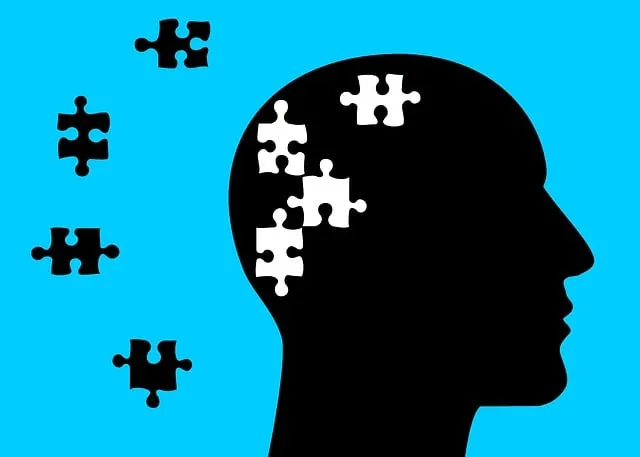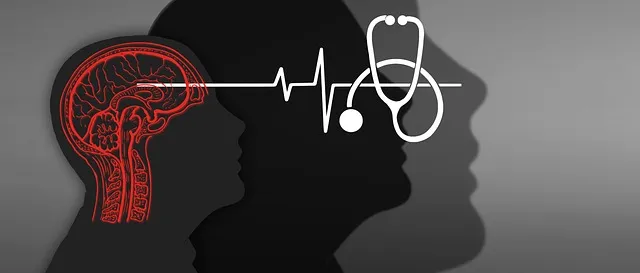Kaiser Permanente mental health jobs in Golden prioritize coping skills and resilience for employee well-being. Through training, mindfulness practices, and self-care, professionals manage stress, enhance emotional intelligence, and improve patient interactions. Community outreach programs integrate these strategies, fostering collective community mental health and well-being.
In today’s demanding work environments, especially within mental health fields like those at Kaiser Permanente, developing robust coping skills is paramount for employee well-being and effectiveness. This article explores key strategies to enhance mental resilience, drawing from insights into Kaiser Permanente’s innovative training programs. We’ll delve into the science behind coping mechanisms, emphasizing mindfulness as a powerful tool for stress management. Additionally, discover golden rules for building resilience at work, offering valuable guidance for those in demanding Kaiser Permanente mental health jobs.
- Understanding Coping Skills for Mental Well-being
- Kaiser Permanente's Approach to Training Employees
- The Role of Mindfulness in Stress Management
- Building Resilience at Work: Golden Rules
- Effective Strategies for Overcoming Challenges in Mental Health Jobs
Understanding Coping Skills for Mental Well-being

Understanding coping skills is paramount for maintaining mental well-being, a concept recognized even by organizations like Kaiser Permanente, especially in their mental health jobs in Golden. These skills empower individuals to navigate life’s challenges and stress with resilience. They include various strategies such as positive thinking, which involves reframing negative thoughts into more constructive ones, fostering a sense of optimism and improved mental fortitude.
The Community Outreach Program Implementation at Kaiser Permanente goes beyond treating symptoms; it focuses on building these coping skills within communities. Social Skills Training is another crucial aspect, teaching individuals how to interact effectively with others, form connections, and reduce social isolation—all vital components for enhancing overall well-being.
Kaiser Permanente's Approach to Training Employees

Kaiser Permanente, a renowned healthcare organization based in Golden, Colorado, takes employee well-being seriously, especially when it comes to mental health jobs. They understand that a healthy workforce is essential for delivering exceptional patient care. As such, Kaiser Permanente has developed an extensive training program focused on coping skills development for their employees. This initiative aims to equip staff with effective tools and strategies to manage stress, resolve conflicts, and maintain a balanced self-care routine.
The program offers various modules tailored to different roles within the organization. From clinical professionals to administrative staff, everyone receives valuable training in conflict resolution techniques, mindfulness practices, and stress reduction methods. By investing in these skills, Kaiser Permanente fosters an environment where employees can thrive and provide the best possible support for their patients’ mental health needs.
The Role of Mindfulness in Stress Management

Mindfulness has emerged as a powerful tool for managing stress, a skill that is highly relevant in today’s fast-paced world. It involves focusing on the present moment, acknowledging and accepting one’s feelings and thoughts without judgment. This ancient practice has gained prominence in modern mental health initiatives, including those offered by organizations like Kaiser Permanente. In the context of Golden’s thriving community, mindfulness programs are often integrated into various mental health services, catering to a diverse range of individuals seeking better coping mechanisms.
By cultivating mindfulness, people can enhance their self-esteem and resilience, two key aspects that contribute to overall well-being. Self-esteem improvement is a significant outcome of regular mindfulness practice, as it encourages individuals to develop a non-critical awareness of their thoughts and emotions. Moreover, community outreach programs focused on mental health awareness campaigns can benefit from incorporating mindfulness techniques to engage and educate residents effectively. This approach not only promotes individual stress management but also fosters a sense of collective well-being within the community.
Building Resilience at Work: Golden Rules

Building resilience at work is a crucial aspect for anyone, especially those in demanding careers like Kaiser Permanente mental health jobs. Golden rules for fostering resilience include prioritizing self-care practices such as regular exercise, mindfulness, and maintaining healthy boundaries between professional and personal life. By integrating these habits, employees can enhance their emotional well-being promotion techniques, ensuring they approach work challenges with a calmer and more focused mindset.
Furthermore, conflict resolution techniques play a vital role in creating a resilient workplace culture. Encouraging open communication, active listening, and empathy among colleagues fosters an environment where disagreements are seen as opportunities for growth rather than obstacles. Mental wellness coaching programs development should be embraced to support individuals in navigating stress and adversity, ultimately contributing to a more productive and satisfied workforce.
Effective Strategies for Overcoming Challenges in Mental Health Jobs

Navigating the demands of a mental health job at Kaiser Permanente requires robust coping skills and resilience. The Golden rule for professionals in this field is to prioritize self-care, as burnout is a common challenge. Incorporating Emotional Intelligence (EI) into daily practice can significantly enhance patient interactions and overall job satisfaction. EI involves recognizing and managing one’s own emotions while empathizing with others, fostering a supportive environment.
Self-Awareness Exercises play a pivotal role in developing EI. Regular reflection on personal responses to challenging situations allows mental health workers to cultivate patience and cultural sensitivity in their practice. Cultural Sensitivity is essential in understanding the diverse needs of patients from different backgrounds, ensuring inclusive care. By combining these strategies, professionals can effectively overcome job challenges, providing quality care for all Kaiser Permanente mental health patients.
Coping skills development is a vital component of maintaining mental well-being, especially within demanding professions like Kaiser Permanente’s mental health jobs. By understanding and adopting effective coping strategies, such as mindfulness and building resilience, individuals can navigate workplace challenges with greater ease. The strategies outlined in this article, informed by Kaiser Permanente’s successful training initiatives, provide valuable tools for enhancing mental health and overall job satisfaction. Remember that developing strong coping skills is a continuous process, and the “Golden Rules” highlighted here serve as a starting point for fostering resilience at work.






